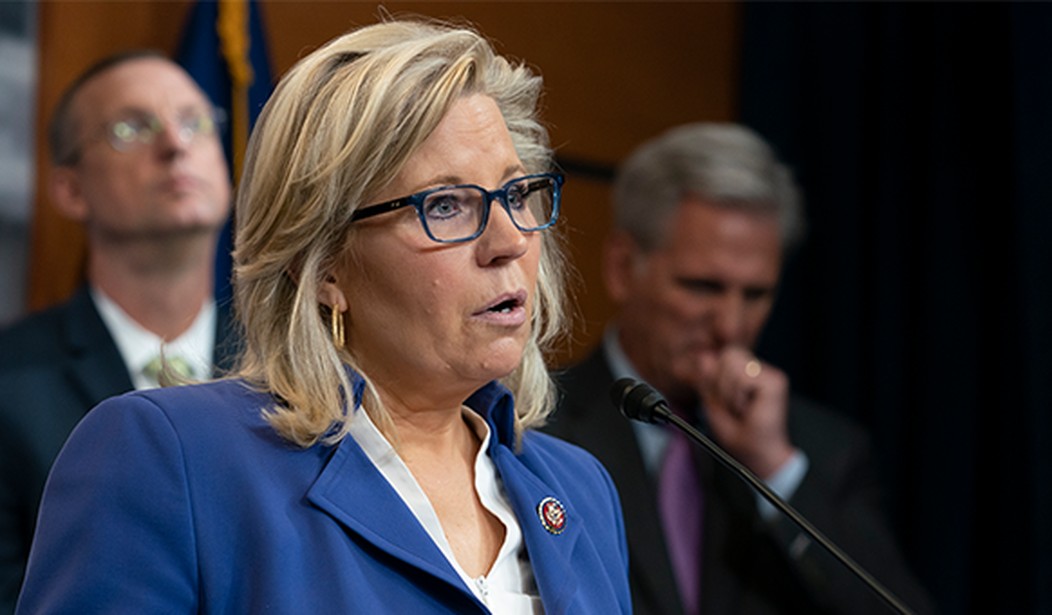With the Biden/Harris administration poised for its debut, conservatives have a full plate of concerns, staring down at least two years of one-party Democrat rule, from the White House to Capitol Hill.
But before plotting any partisan strategies, there is a brushfire to address within the ranks: the Republicans who developed an affinity for impeachment. Some went so far as to vote for it in the House of Representatives Wednesday. Others flirted with it, stopping short of boarding the impeachment train, but nonetheless telegraphing their belief that President Trump bears direct responsibility for the January 6 Capitol riots.
That’s a tough tightrope to walk. A president who actually did incite a mob to violence would be a prime candidate for impeachment. So what kept a larger GOP contingent from siding with the Democrats? Why would there be zero chance of sufficient Republican support in the Senate if there were the slightest chance of a trial?
It’s simple. There was no incitement. It is an illusion born in the minds of people who wish to take a final stab at Trump as he exits. The riots provided them the opportunity to hit rewind, parse the words Trump spoke that morning, and retroactively assign the most sinister possible spin.
So what sent us down the impeachment road again? The motive for Democrats is the same as it was a year ago: they despise him. But what of Republicans showing tolerance if not outright support of Impeachment 2.0 What drives them? The answers may vary, but they can be found among one or more of these factors:
Recommended
For some, Trump’s unapologetic boldness was scary, and so are the voters who embraced it. In the squeamish wing of the party, there is a longing for the lukewarm donor-friendly meanderings of establishment control. As the Trump term ends, they harbor a goal of scandalizing the voters who lifted him to the presidency. Poisoning his final days with another attempted eviction might teach the rubes a lesson about favoring his flavor of leadership.
For others, the decision to support impeachment is a surrender to mob groupthink. Before the insurgents began scaling the Capitol walls, the left (and some purportedly on the right) made clear that challenging the election results was not merely a position to be opposed; it was an act of fantasy-addled sedition. Most Republicans, even if they did not wish to see actual electoral votes rejected, at least showed respect to the millions of voters who found great fault with vote totals tainted by mischief and lawlessness in several states.
A few could not muster that accommodation. The surest way to appease the loudest voices was to break ranks, throwing themselves on their mercy with a parting burst of hostility to Trump, in hope of being spared the editorial page spankings and other trollings that had befallen those who gave voice to the objections.
A final possible motivation for the impeachment caucus in the GOP is the delivery of a positioning statement, a gesture designed to curry favor with moderates, independents and Republicans not as enamored of the Trump style or legacy. The entire spectrum of Republican America will be looking for heroes in the 2022 midterms and the 2024 presidential race.
So the gamble is this: in joining Democrats, the media, the Lincoln Project and every other corridor of Trump derision, have these wayward Republicans done themselves a favor or committed political suicide? Only time will tell, and the answer will be a factor of two Republican attributes: memory and forgiveness.
As scalding as the current imagery is, never underestimate the modern capacity for moving to the next crisis that requires our attention, allowing past tensions to dwindle in the rear-view mirror. Also, from big names like Liz Cheney to the far more obscure colleagues who joined her in the impeachment vote, virtually all will spend the next year as good soldiers in the battles against Biden and a Democrat congress. It’s easy for offended conservatives to instantly cry out for a primary opponent for the offenders, but it remains hard to beat incumbents, even those who have committed an egregious sin mere days into their terms.
Successful challenges will require not just long memories but huge money, and most importantly, superb alternative candidates. None of those is assured.
Much depends on how the next year plays out in the political landscape, and to a degree, the fate of the Trump brand. If his reputation remains broadly on the ropes at the end of 2021, the impeachment votes will not continue to bleed. But if time brings a different focus, as voters remember the reasons why they voted for Trump in the first place, and recall the wholesale fiction of the incitement smear, the long arm of consequences may well reach the Republicans who rolled the impeachment dice.

























Join the conversation as a VIP Member